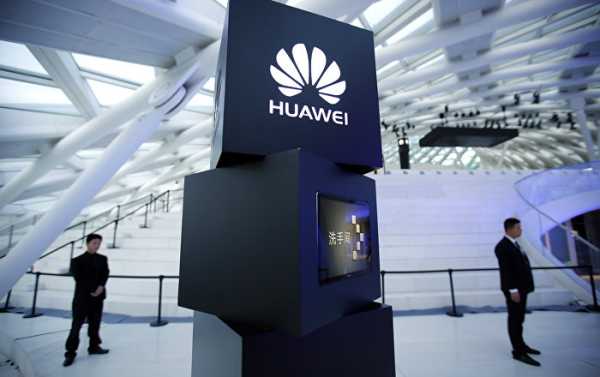
This week, Meng Wanzhou, the CFO of Chinese telecommunications giant Huawei, filed a lawsuit in Canada, claiming her constitutional rights were violated during her arrest, while the company itself intends to file a lawsuit against the US administration over its law banning US federal agencies from purchasing Huawei products.
Jude Woodward, the author of the new book “The US vs China: Asia’s new Cold War?” told Radio Sputnik’s Loud & Clear Wednesday that Huawei’s reported plans to sue the US government over its ban on Huawei products is valid, given the lack of evidence provided by the US government over its claims that the Chinese company spies on US technology.
According to unidentified sources who recently spoke to the New York Times and the Financial Times, Huawei will claim that the US’ John S. McCain National Defense Authorization Act, passed in August 2018, which bans government agencies from using technologies from Huawei and ZTE, Huawei’s smaller Chinese rival, violates the US Constitution by singling out the technology firms without trial.
The US government has repeatedly asserted that Huawei’s products are being used by Chinese intelligence services for spying and stealing American intellectual property.
“I think the lawsuit makes a very valid point, which is that these [US] executive orders on security were imposed without Huawei being given any evidence on which this is based. So, essentially it was trial without evidence,” Woodward told host Walter Smolarek.
And Woodward doesn’t give much credence to the argument that Huawei devices are actually Trojan Horses to allow the Chinese government to spy on rivals.
“Huawei… doesn’t do a lot of publicity work, it just puts its products out there. It has made very clear, public, unusual statements saying it does not not give information to the Chinese government, so that rather lends credence, I would say, to the argument that [spying claims are] not true, because I don’t think they would make such clear and unambiguous statements if they thought that evidence was about to be turned up,” she said.
Last year, Australia, Japan, New Zealand and the United States banned the Chinese telecommunications giant from participating in government contracts. In December 2018, Meng was arrested in the Canadian city of Vancouver for reportedly failing to comply with US sanctions against Iran.
Her arrest was criticised by Beijing, which has urged Canadian authorities to release the Chinese national.
Huawei might have found itself in American crosshairs over simple technological and economic rivalry, the journalist said.
“If it’s [the US accusations against Huawei] not true, and let’s for the moment assume that it’s not true, then it’s clear that the reason that has been widely speculated in the media, which is that the US administration does not want a Chinese company to become a leading company on the 5G technology. So, rather than the whole world being dependent on the most advanced US technology, in some areas at least, the world will become dependent on Chinese technologies,” Woodward explained.
“The US accuses China of stealing technology but also of unfairly using important state investment to develop R&D and to aid particular companies. This is, I find, ironic, because if we believe what the [US] neoliberals say, then actually it should be to the detriment of China that it interferes with the market this way.”
“China relies on the hidden and open hands of the market. It’s not that it’s against markets; it would be mad to be against markets, but as long as they are regulated. And that’s what China insists upon: state-led investment to develop new technologies, control over its banks and its currency in order to be able to most efficiently involve itself in the market, and this, according to neo-liberals, shouldn’t work at all,” Woodward added.
This week, Meng filed a lawsuit against Canadian officials, claiming her constitutional rights were violated during her arrest.
The lawsuit, filed in Canada’s Supreme Court against federal government branches the Canadian Border Services Agency and the Royal Canadian Mounted Police, asserts that officials, “under the guise of a routine border check, unlawfully subjected [Meng] to detention, search and interrogation to extract evidence from her before she was arrested and provided with her rights under the Charter.”
The lawsuit seeks damages for “misfeasance in public office and false imprisonment based on alleged multiple failures of those Canadian government officials to comply with the rule of law,” the statement by her lawyers said, Sputnik previously reported.
“She’s [Meng] accused of having misled the US over the involvement of Huawei in activities which amounted to sanctions [busting] in Iran. [Some of the evidence the US is relying on is] incredibly old, and they have known it for years. [This] casts doubt on why, at this point, they [the US] moved against her, even if the evidence is true, which we don’t know. She’s taking this civil action in Canada claiming unfair arrest. Again, I think this is less about winning such a case,” Woodward told Sputnik.
“On an extradition procedure, there’s very little that can be done in terms of calling on evidence, whereas if there is a case on these grounds, she hopes that, she and her lawyers hope that, they get more of the evidence for the US’ case [against Huawei] into the open,” Woodward continued.
Sourse: sputniknews.com






